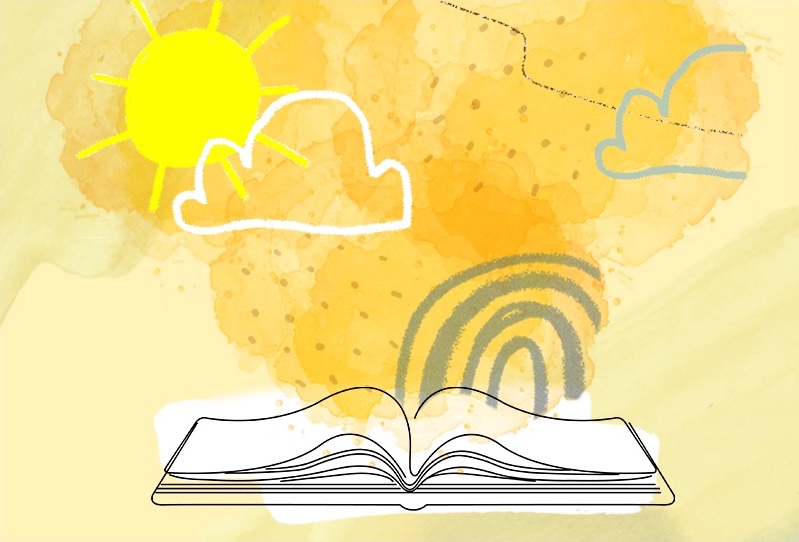Children’s Book Writing I
GUIDE TO FICTION COURSES
Children’s Book Writing I is a 10-week workshop, which includes lectures, exercises, and the critiquing of student projects. It’s for beginners or anyone who wants to brush up on the fundamentals. Farther down, you can view a syllabus for this course.
The quiet magic of Goodnight Moon grows into the zaniness of Dr. Seuss and widens into the dazzlement of Harry Potter then matures into the straight talk of Judy Blume and the gritty reality of The Hate U Give. Such is the amazing journey children take through books. These stories are a treasured part of childhood and they linger for a lifetime.
To captivate young readers, you must balance a youthful imagination with an adult professionalism. Here you will learn about the various types of children’s books and their special requirements, as well as fiction craft and how to market your work.
Whatever type of children’s book you seek to write—picture books, easy readers, chapter books, middle grade, young adult—we’ll show you how to write stories that entrance.


It was not only a comprehensive overview and introduction to the world of children's literature and publishing, but also one of the most clear, thorough and informative guides to writing and, more importantly, storytelling that I have ever encountered.
Megan Gruver
children's media researcher
Notes
Our Children’s Book courses cover the full spectrum of children’s books, from picture books to YA novels. Many children’s books authors write books for various age levels. The focus is mostly on fiction, but writers are welcome to work on nonfiction children’s books.
If you want to work on a YA novel, you may do so in our Children’s Book courses, or in Fiction I or (at the advanced level) Novel II First Draft and Novel II Critique, or our genre courses: Science Fiction & Fantasy, Mystery, Romance. The difference: In a Children’s Book course, you will be learning about and reading works for various age levels; in the other courses, you will be learning about and reading works for adults. This is fine because YA novels are very close to adult novels.
Upcoming Classes
More Covid details
10-Week
-
Online
Anytime, week-long sessions
Tuition: $439 (returning students: $409)
-
One-on-One
Tuition: $1,795
Syllabus
This course gives you a firm grounding in the basics of writing children’s books and gets you writing a book. Course components:
Lectures
Writing exercises
Workshopping of student projects (each student presenting work two times)
New York City/Zoom classes
The syllabus varies from teacher to teacher, term to term. Many topics will be similar to those covered in the Online classes.
Online classes
Week 1
Introduction to Children’s Books: The different categories of children’s books. Constants and variables in children’s books. Vocabulary, darkness, humor, series, anthropomorphism. Specific requirements of picture books. Where to find inspiration and ideas. The importance of craft.
Week 2
Plot: Finding a major dramatic question. Shaping a picture book plot. Shaping a longer book plot. Pros and cons of outlining.
Week 3
Character: Where to find characters. Making characters dimensional through desire and contrasts. Creating character profiles. Showing vs. Telling. Methods for showing characters. Animal characters.
Week 4
Point of View/Voice: Point of view defined. Exploration of the various types of point of view. Voice defined. Exploration of the various types of voice. Tips for finding your voice.
Week 5
Description: Using the senses. Specificity. Techniques for creativity. Finding the right words. Economy. Merging description with point of view.
Week 6
Dialogue: The importance of scene. Dialogue's illusion of reality. Quotation marks and tags. Stage directions. Summarized dialogue. Characterization through dialogue. Subtext.
Week 7
Setting/Fantasy: Creating setting through time, place, and weather. Description of setting. When setting is a major character. Fantasy logic and details. Finding a fresh fantasy world.
Week 8
Nonfiction: Pros of writing a nonfiction children's book. The spectrum of nonfiction. Shaping nonfiction into a story. Choosing a topic. Nonfiction book proposals.
Week 9
Theme/Revision: Theme defined. Types of theme. Weaving theme into a story. Exploration of the various stages of revision.
Week 10
The Business: Proper format for manuscripts. How to target publishing houses and agents. How to send your work out. Query letters.
Note: Content may vary among individual classes.
Teachers

Margaret Meacham
Margaret Meacham has published many books for children, including the middle grade novels Oyster Moon, The Secret of Heron Creek (both Tidewater), A Mid-Semester Night's Dream (Scholastic), Quiet! You're Invisible, A Fairy's Guide to Understanding Humans (both Holiday House), and The Ghosts of Laurelford (Sunbury). She is also the author of the adult mystery novel The Survival of Sarah Landing (Sunbury). Her articles and short stories have appeared in Library Journal, Country Magazine, Successful Student Magazine, Maryland Magazine, Highlights for Children, Baltimore Magazine, and the Baltimore Sun. She has taught at Goucher College and Towson University. She holds a BA from Trinity College and an MLIS from the University of Maryland.
Read more
has published many books for children, including the middle grade novels Oyster Moon, The Secret of Heron Creek (both Tidewater), A Mid-Semester Night's Dream (Scholastic), Quiet! You're Invisible, A Fairy's Guide to Understanding Humans (both Holiday House), and The Ghosts of Laurelford (Sunbury). She is also the author of the adult mystery novel The Survival of Sarah Landing (Sunbury). Her articles and short stories have appeared in Library Journal, Country Magazine, Successful Student Magazine, Maryland Magazine, Highlights for Children, Baltimore Magazine, and the Baltimore Sun. She has taught at Goucher College and Towson University. She holds a BA from Trinity College and an MLIS from the University of Maryland.